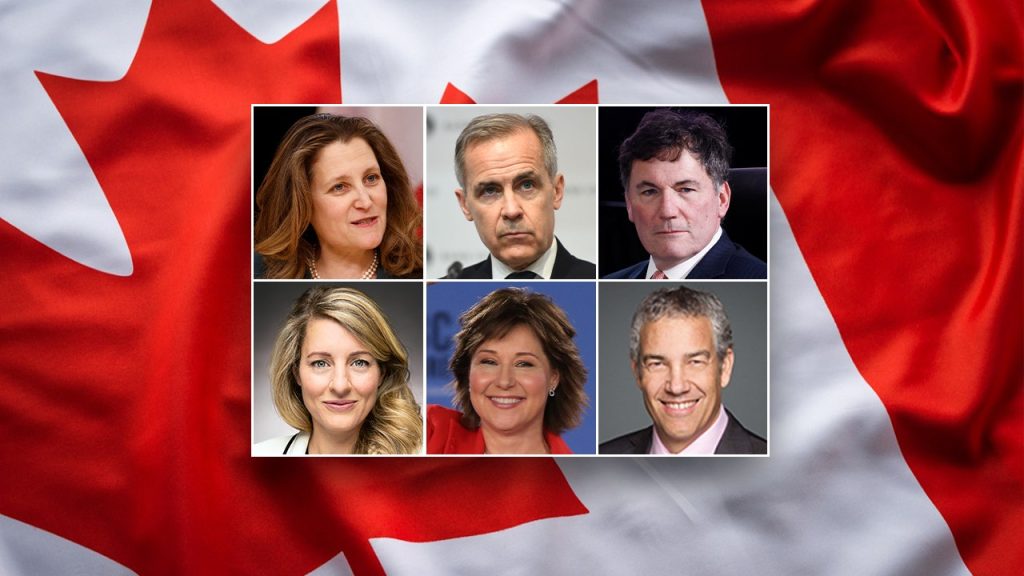The Unexpected Resignation and the Scramble for Leadership
Justin Trudeau’s sudden resignation as Prime Minister of Canada has sent shockwaves through the political landscape, leaving the Liberal Party grappling with declining popularity and an impending election. Trudeau’s departure, announced amidst swirling rumors of internal dissent and plummeting approval ratings, marks a significant turning point for the party. The upcoming leadership contest will determine not only the next leader of the Liberals but also the next Prime Minister of Canada. This individual will inherit a complex set of challenges: a struggling economy grappling with rising living costs, a growing immigration crisis, and the looming specter of aggressive economic policies from the newly elected US President, Donald Trump. Adding to the pressure is the resurgent Conservative Party, poised to capitalize on the Liberals’ vulnerability in the upcoming election scheduled for no later than October. The Liberal Party is tasked with selecting a leader capable of navigating these turbulent waters and regaining the trust of the Canadian electorate.
The Contenders: A Mix of Experience and New Blood
The race to replace Trudeau is already attracting a diverse field of candidates, each bringing their own strengths and weaknesses to the table. Chrystia Freeland, the former Finance Minister and Deputy Prime Minister, is considered a frontrunner due to her prominent role in Trudeau’s government. However, her close association with the outgoing Prime Minister and his policies, along with her strained relationship with President Trump, could prove to be liabilities. Mark Carney, the former Governor of both the Bank of Canada and the Bank of England, enters the race with a formidable reputation as an economist and crisis manager. Despite his lack of political experience, Carney is viewed by some, including reportedly Trudeau himself, as a potential savior for the Liberals. Yet, his lack of elected office experience and perceived similarity to Trudeau’s policies may alienate voters seeking a fresh start.
Dominic LeBlanc, the current Finance Minister and a close friend of Trudeau, is another prominent contender. Known as Trudeau’s "fixer," LeBlanc has a reputation for taking on challenging portfolios and navigating difficult situations. However, his close ties to the outgoing Prime Minister could be perceived as a continuation of the status quo, potentially hindering his appeal to voters seeking change. Mélanie Joly, the Foreign Affairs Minister, has gained valuable experience navigating international relations, including managing Canada’s relationship with the US under the Trump administration. Joly represents a younger generation within the Liberal Party and her diplomatic skills could be valuable assets in the current geopolitical climate. However, her relatively short time in federal politics might be seen as a lack of experience for the top job.
Outsiders and Underdogs: Expanding the Field
Beyond the established figures within the Liberal Party, several other individuals are emerging as potential contenders. Christy Clark, the former Premier of British Columbia, has expressed interest in leading the party, offering an outsider perspective and a distance from Trudeau’s government. Her experience as a provincial leader could appeal to voters seeking a change in direction. Frank Baylis, a former MP and businessman, is another candidate emphasizing his experience outside of professional politics. He posits his business acumen, including experience negotiating contracts with both Canadian and American entities, as an asset in dealing with the Trump administration. Baylis represents a departure from the traditional political trajectory, offering a different perspective on leadership.
The Challenges Ahead: Navigating a Complex Landscape
The next Liberal leader will face a daunting array of challenges. The Canadian economy is facing headwinds, with rising living costs and inflation impacting households across the country. The immigration system is under strain, requiring comprehensive reforms to address backlogs and ensure its effectiveness. The relationship with the United States, a crucial economic and political partner, requires careful management given President Trump’s unpredictable and often aggressive policies. Furthermore, the Liberal Party must contend with a resurgent Conservative Party, eager to capitalize on the current political climate and regain power.
The Stakes are High: Defining Canada’s Future
The Liberal leadership contest is not merely an internal party affair; it is a pivotal moment for Canada. The next leader will shape the country’s direction on critical issues, from economic policy and social programs to foreign relations and environmental protection. The chosen leader must not only unite the Liberal Party but also inspire confidence in the Canadian people, demonstrating the ability to navigate complex challenges and lead the country forward. The upcoming election will be a referendum not just on the Liberal Party, but on the future direction of Canada itself. The chosen leader must present a compelling vision for the country, capable of addressing the concerns of Canadians and charting a course for a prosperous and secure future.

